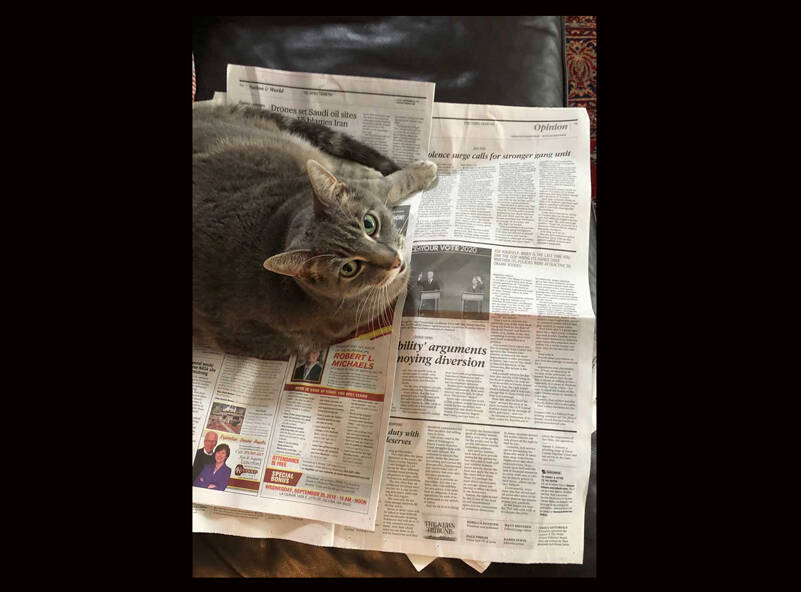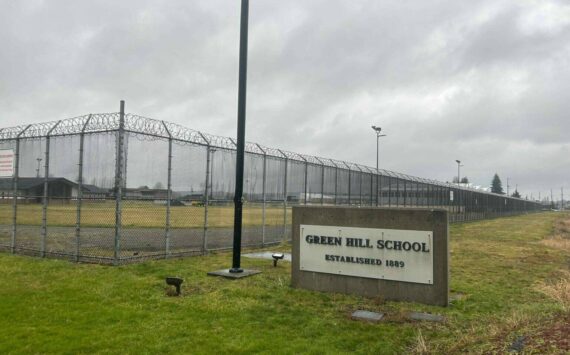By Morf Morford, Tacoma Daily Index
Local, national or even international newspapers and news magazines are on a dramatic decline. That is certainly not news. But what passes for news in most other formats has become a cyclical collapse into a suicidal contest of diminishing returns in an ever more frantic reach as they chase clicks, eyeballs, outrage and disappearing dollars.
Cable news led the way into the hall of mirrors of outrage, offense, chaos and noise where the attire of animated M&M figures looms larger than public safety in any realm from food to public schools to transportation in air or on the ground.
Triviality doesn’t even begin to capture the shimmering imbecility of what passes for headlines on too many news services.
We might have a war in Europe and a relentless housing problem (both in terms of costs and homelessness) but for some, it seems, the war on “woke” preempts any coverage of any bread and butter issues (like our crumbling infrastructure, economic stability and a pandemic or two, among many other things).
For better or worse, the printed page is (relatively speaking) a stable feature in our ever shifting media landscape.
America, writ large and locally is up against monumental challenges right now. We need a better way to get information out to everyone that wants it. Or needs it.
Just a few years ago, in any and (almost) every stable neighborhood, newspapers were physically delivered on a daily basis. To a large degree, we all received the same information – and presumed it to be, for the most part, reliable and authoritative. We believed it was.
And those who produced it took something like a public vow to make it as complete, fair and objective as possible.
It might have been a naive belief, but it was one most of us shared.
We might not have all “agreed”, but we shared a basis of solid information. There were things we all “knew”.
Those days are long gone, but the need is still there.
A prominent politician recently made the claim that we, as a nation, need to make a choice between “normal and crazy”. I may not agree with her as to who fits into which category, but in a sense, she’s right; “normal” by definition means standard or agreed upon – like the news of a generation ago.
The unhinged rantings of “influencers” who seem to be forever unaccountable under the umbrella of “free speech” create more, and more extreme, “crazy” people.
And if you know anyone who has gotten caught up in the endless, shrill, incoherent (and often contradictory) galaxy of conspiracy theories, you know that, not only do they make no sense, but there is no end to the cynicism and fatalism inherent in such a set of destabilizing beliefs – and they are as destabilizing to our personal sanity as to our orderly political processes.
Every one of us, from citizen to student to legislator is safer, more secure and confident when solid, verifiable news is accessible to everyone – especially those who most need it, so they can find information they can trust and that equips them to meet their challenges, secure and stabilize their lives and communities and achieve their own goals.
Local newspapers won’t solve every problem, but few problems will be solved without them.
And, in tonight’s imaginary news…
The outrage-of-the-month club might keep our pulses going, but does nothing toward building a robust, responsive and healthy civic infrastructure.
Too many of the cable news and online “news” services dazzle us with scandals and conspiratorial fantasies. Anything, it seems, to keep us from looking at the larger, more enduring and certainly more impactful dynamics that threaten every aspect of our economy, livelihoods and safety.
For whatever reason, rantings about “wokeness” or M&M cartoon characters seems to generate ratings and ad revenues, while mundane, even boring but essential civic gatherings (or reporting on them) seems difficult to pay for.
But how should civic information our communities need and deserve get paid for?
If there is anything that should not have a standard “paywall” it would be local, crucial and immediately relevant news.
What the news format of five years from now, or even next year, will look like is anyone’s guess, but, the bottom line is that, whatever it costs, and whoever pays for it, we need it. Maybe more now than ever. The real news is that we are lost without it.
The old saying still holds true; information is power. And we are all learning that statement’s corollary – lack of information is lack of power.





